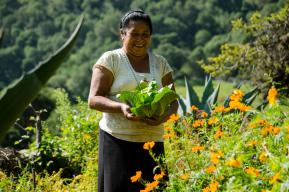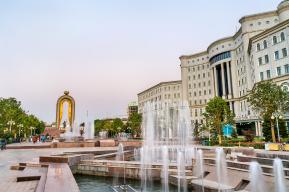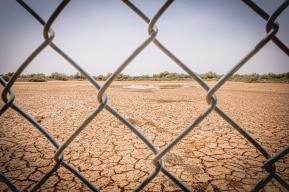On 28 September 2023, the UNESCO Regional Bureau for Science and Culture in Europe opened its premises in Venice for the GEO4CIVHIC Summer School held under the theme of “heating and cooling our buildings with green energy”. The event brought together students interested in green energy with experts in technology, engineering and geology, in a conversation on the adoption of renewable energy solutions in historic buildings.
Nowadays, green energy experts across Europe are focused on researching how to generate new tools and improve existing ones, in order to facilitate the most easy and cost-effective geothermal energy solutions. Advancements in sustainable development, notably renewable energy in cities, can only be achieved by ensuring access to affordable, reliable, sustainable and modern energy for all (SDG 7), as well as making cities and human settlements inclusive, safe, resilient and sustainable (SDG 11).
GEO4CIVHIC (Most Easy, Efficient and Low-Cost Geothermal Systems for Retrofitting Civil and Historical Buildings) is a 6-year lifespan Innovation Action (IA) project, funded by the European Union’s Horizon 2020 Research and Innovation Programme. The project intends to explore new opportunities for improving the efficiency and installation of geothermal systems in historical and residential buildings. GEO4CIVHIC experts work to accelerate the deployment of shallow geothermal systems for heating and cooling in such buildings by using innovative technological solutions at a reduced cost.

The scope of this activity is to educate young people and raise their awareness on generating and using innovative technologies in geothermal and renewable energy.
Secondary school and university students
In this context, the UNESCO Regional Bureau for Science and Culture in Europe, together with the project coordinator, Prof. Adriana Bernardi (CNR-ISAC), organised the GEO4CIVHIC Summer School, which was attended by 58 selected students from secondary schools and universities, both in presence and online.
The Summer School started with an icebreaker activity, dedicated to getting to know each student and their preferred domain of study or work. After an introduction to the project, the students were divided into 2 groups where they had the opportunity to engage in discussions with each GEO4CIVHIC expert. The students dove deeper into the successful work already done in 3 historical sites around Europe: Porta degli Angeli in the UNESCO World Heritage site of Ferrara, City of the Renaissance, and its Po Delta (Italy), an historical residential house in Greystones (Ireland) and the Msida Bastion historic garden in La Valetta (Malta).
The works at Porta degli Angeli, implementing the specially adapted real demonstration component, were facilitated by the UNESCO Regional Bureau, with the support of the management authorities and the GEO4CIVHIC technical partners.
Strong end and a stimulating discussion
The experts’ presentation stimulated discussion amongst the students who started dialogues and discussions on various topics, including geothermal energy technologies and the possible difficulties encountered on the work sites.
This initiative not only strengthened UNESCO’s regional network of young green energy leaders but also created the opportunity for students to acquire new skills and insights. Participating in close conversations with industry experts also allowed students to explore potential career prospects in the field of geothermal energy applied to historical buildings.
During the final session, students filled the “wall of ideas” - a blank space where they could share their thoughts related to the day. From the results collected, students enjoyed being part of this initiative. Many of them felt inspired about having discovered a new field of work in which they could see themselves potentially working in the future. Others suggested more practical ways of increasingly introducing geothermal technology into society.

The UNESCO Regional Bureau is proud to have contributed to the journey of self-discovery of future young leaders in the fields of sustainable energy and sustainable development.









